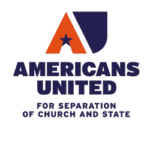Here they go again! $29 million in NEW taxes on the December Ballot
The voters overwhelmingly said "NO" to new taxes - but they don't careNow that the high-turnout November election is behind us, they’re back at it again with MORE new taxes on the low-turnout December 8th ballot. How low? Well, the approximate turnout in November was right at 50% in Lafayette Parish. Our US Congressional district was had 77,316 voters participate, while the Secretary of State’s race was just slightly less with 76,098 voters. These numbers support a hypothesis that personalities drive turnout. Simply put, candidates spend money on advertising and yard signs. That advertising drives turnout.
Contrast that with the April 28th showing of just eight-percent (12,138 voters). There were no personalities on the ballot, and therefore, no one spending money advertising election campaigns. Fewer people knew about or were inspired by the ballot and fewer voted. The highest item in that race was the failed library tax renewal.
One could assume that government employees benefit from higher taxes in the form of increases in pay, addition of more employees, newer equipment, etc. This is the same short list of advantages that’s being touted as reasons to vote in favor of both taxes on the December ballot.
How many people would that higher tax revenue impact? According to the 2017 CAFR (page 250), local governments inside Lafayette parish employ 9,766 people. That doesn’t include companies who also benefit from tax increases. LGMC, for example, turned its 4,600 employees into activists who demanded legislators raise your taxes. If they were inspired enough to write letters and make phone calls for the cause of higher taxes, they would be likely to also vote for them. Combined, that’s 14,366 local people employed in positions that are wholly or at least partially taxpayer-funded. That number is significant enough to swing an entire low-turnout election in favor of higher taxes.
The Sheriff’s tax
The Sheriff’s office directly employs 875 people. Last year, of the $64 million in total revenue, $42 million is attributable to local taxes, of which $5 million was sales tax. The proposal that’s on the December 8th ballot would adjust those numbers to $84 million in overall revenue by increasing the sales tax from the current $5 million to $25 million if approved by voters. Goals of the tax increase is to increase the total number of sheriff deputies, and eliminate about $37 million in debt ($17 million for the facility on Willow, and $20 million in pension obligations). The increase in the number of uniformed officers also increases the number of vehicles and other equipment used by those officers.
The Fire District tax
The fire district tax that also appears on the December 8th ballot is reportedly an offshoot of the Sheriff’s original proposal to create a law enforcement and fire district. When it was made known that the Sheriff couldn’t levy a tax for fire protection, it was dropped from the proposal. We understand that’s when it was picked up by others. Currently, Lafayette Parish spends about $1.6 million per year on parish-wide fire protection. It’s intended to provide fire protection for the unincorporated areas of the parish. To be clear, this money doesn’t go to a parish fire department, but to the nearby municipalities.
The proposed tax is for $4 million (a 3x increase) and would be levied against residents and businesses in the unincorporated parts of Lafayette Parish. That allow the parish to keep $1.6 million for the general fund that it had previously been spending in fire. If it passes, we don’t see that any firehouses will be built and no parish fire department will be created. It will simply increase the subsidy to municipal fire departments paid for by parish residents.
Fix the charter / council divorce
Finally, on the ballot is the council divorce ballot initiative. This effectively reduces civilian oversight of Lafayette’s $100 million budget from 9 people to 5. We’re including it in this new taxes post because its proponents admitted that they organized as a direct response to the failure of the library tax earlier this year. In our opinion, that means their ultimate purpose is to raise your taxes.
###







